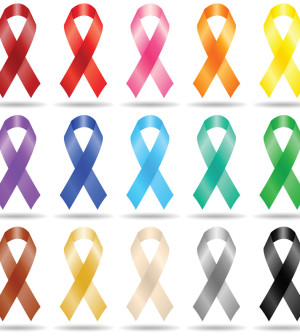- Could Your Grocery Store Meat Be Causing Recurring UTIs?
- Are You Making This Expensive Thermostat Error This Winter?
- Recognizing the Signs of Hypothyroidism
- 10 Strategies to Overcome Insomnia
- Could Artificial Sweeteners Be Aging the Brain Faster?
- Techniques for Soothing Your Nervous System
- Does the Water in Your House Smell Funny? Here’s Why
- Can a Daily Dose of Apple Cider Vinegar Actually Aid Weight Loss?
- 6 Health Beverages That Can Actually Spike Your Blood Sugar
- Treatment Options for Social Anxiety Disorder
New Guidelines for Treating Form of Advanced Breast Cancer


A leading group of oncologists has released updated guidelines for the treatment of the major form of advanced breast cancer.
HER2-negative breast tumors include cancers that don’t respond to drugs that target the HER2 protein, the American Society of Clinical Oncology (ASCO) explained Tuesday in a news release. Almost 80 percent of women with advanced breast cancer have HER2-negative tumors, the group noted.
“In releasing this guideline, our aim is to improve both the length and quality of patients’ lives,” Dr. Ann Partridge, co-chair of the expert panel that developed the guidelines, said in the statement. “Although no clear chemotherapy winner emerged — the guideline will help doctors and patients choose the best therapy based on what treatment would be most tolerable and convenient for the patient.”
The new guidelines were geared toward women with advanced cancers who are set to begin a chemotherapy regimen.
The ASCO panel believes that hormonal therapy should be the first choice of treatment for women whose tumors carry receptors for estrogen. There were exceptions to that advisory: Women who had “immediately life-threatening” disease or who might prove resistant to hormone therapy might be referred to another treatment, ASCO said.
Avastin (bevacizumab) is not advised for most patients, and “should only be considered with single-agent chemotherapy when there is immediately life-threatening disease or severe symptoms,” the ASCO panel said. Avastin is currently not approved for breast cancer treatment by the U.S. Food and Drug Administration.
When it comes to the timing of various chemotherapies, the ASCO experts said women should be given treatments in sequence, not in combination. That should help curtail side effects and help boost quality of life.
For patients with advanced breast cancers, the ASCO panel advised against the use of certain “targeted” drugs in addition to, or in place of, recommended chemotherapies. One such targeted medicine, everolimus, has been approved for use in combination with the hormonal drug exemestane — but only for patients with early stage breast cancers.
All decisions as to which therapy to take and when should be based upon detailed discussions between a patient and her doctor, ASCO suggested. Factors to consider are a woman’s history of prior treatments, potential side effects, scheduling of treatments, other medical conditions the patient might have, and a patient’s personal preference, “because there is no single optimal chemotherapy,” the ASCO team said.
“There are many different types of treatments available but some are unnecessarily toxic,” Dr. Ian Smith, co-chair of the expert panel that developed the guidelines, explained in the statement. “This guideline emphasizes that breast cancer can often be controlled with less-intensive approaches that offer a better quality of life for patients. Patients should be involved in decisions about their own treatment and also encouraged to participate in clinical trials whenever possible.”
The guidelines are published in the Sept. 2 issue of the Journal of Clinical Oncology.
More information
Find out more about HER2-negative and other breast cancer types at Susan G. Komen.
Source: HealthDay
Copyright © 2026 HealthDay. All rights reserved.










